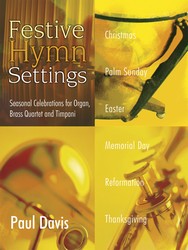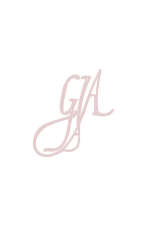- |
User Links
Send out Thy light and truth, O God
Send out Thy light and truth, O God
Author: James MontgomeryTune: EIN FESTE BURG
Published in 6 hymnals
Representative Text
Send out Thy light and truth, O God!
With sound of trumpet from above;
Break not the nations with Thy rod,
But draw them as with cords of love;
Justice and mercy meet;
The work is well begun,
Through every clime their feet,
Who bring glad tidings, run;
In earth, as heaven, Thy will be done.
Before Thee every idol fall,
Rend the false prophet's veil of lies;
The fulness of the Gentiles call,
Be Israel saved, let Jacob rise:
Thy Kingdom come indeed,
Thy church with union bless,
All scripture be her creed,
And every tongue confess
One Lord,--the Lord our Righteousness.
257
Now for the travail of His soul,
Messiah's peaceful reign advance;
From sea to sea, from pole to pole,
He claims His pledged inheritance:
O Thou most mighty! gird
Thy sword upon Thy thigh,--
That two-edged sword,--Thy word,
By which Thy foes shall die,
Then be new-born beneath Thine eye.
So perish all Thine enemies,
Their enmity alone be slain;
Them, in the arms of mercy seize,
Breathe, and their souls shall come again:
So may Thy friends at length,
Oft smitten, oft laid low,
Forth, like the sun in strength,
Conquering, to conquer go,
Till to Thy throne all nations flow.
Sacred Poems and Hymns
Author: James Montgomery
 James Montgomery (b. Irvine, Ayrshire, Scotland, 1771; d. Sheffield, Yorkshire, England, 1854), the son of Moravian parents who died on a West Indies mission field while he was in boarding school, Montgomery inherited a strong religious bent, a passion for missions, and an independent mind. He was editor of the Sheffield Iris (1796-1827), a newspaper that sometimes espoused radical causes. Montgomery was imprisoned briefly when he printed a song that celebrated the fall of the Bastille and again when he described a riot in Sheffield that reflected unfavorably on a military commander. He also protested against slavery, the lot of boy chimney sweeps, and lotteries. Associated with Christians of various persuasions, Montgomery supported missio… Go to person page >
James Montgomery (b. Irvine, Ayrshire, Scotland, 1771; d. Sheffield, Yorkshire, England, 1854), the son of Moravian parents who died on a West Indies mission field while he was in boarding school, Montgomery inherited a strong religious bent, a passion for missions, and an independent mind. He was editor of the Sheffield Iris (1796-1827), a newspaper that sometimes espoused radical causes. Montgomery was imprisoned briefly when he printed a song that celebrated the fall of the Bastille and again when he described a riot in Sheffield that reflected unfavorably on a military commander. He also protested against slavery, the lot of boy chimney sweeps, and lotteries. Associated with Christians of various persuasions, Montgomery supported missio… Go to person page >Text Information
| First Line: | Send out Thy light and truth, O God |
| Author: | James Montgomery |
| Meter: | 8.8.8.8 D |
| Language: | English |
| Copyright: | Public Domain |
Notes
Send out Thy light and truth, O God! J. Montgomery. Missions.] This well-known hymn was first printed in a religious annual, The Christian Keepsake, in 1836; again in Montgomery's Original Hymns, 1853, No. 253; and again in Mercer's Church Psalter & Hymn Book, 1854, No. 381, in 4 stanzas of 8 lines, the only change from the 1836 text being st. iii. 1. 9, “Then spring" to "Then be new born," &c. From Mercers Preface it would seem that he was under the impression that it was written specially for his collection. Montgomery says in a note in his Original Hymns, p. 256, that it was written "in the metre and to suit the tune of the hymn said to have been composed and set to music by Luther, and sung by him and his friends as they entered the city of Worms to appear before the Diet there." The German hymn referred to is Ein’ feste Burg. Montgomery's hymn, however, has nothing in common with Luther's save the metre. It has attained to somewhat extensive use in Great Britain and America.
--John Julian, Dictionary of Hymnology (1907)
Tune
EIN FESTE BURGThe original rhythms of EIN FESTE BURG (see 469) had already reached their familiar isorhythmic (all equal rhythms) shape by the time of Johann S. Bach (PHH 7) in the eighteenth century. The harmonization is taken from his Cantata 80. Many organ and choral works are based on this chorale, including…


 My Starred Hymns
My Starred Hymns





